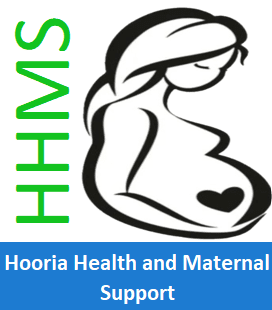Postpartum Anxiety vs. Postpartum Depression: Understanding the Difference

Posted on October 20th, 2025
Introduction: It’s Okay to Ask, “Is This Normal?”
You love your baby. You’re grateful. You should be happy, and yet, something feels off. Maybe your mind won’t stop racing. Perhaps you cry unexpectedly. Maybe joy feels far away.
If that sounds familiar, you’re not alone. Many new mothers experience emotional shifts after childbirth. Some are part of the standard adjustment; others may be signs of postpartum anxiety or postpartum depression.
At Hooria Health and Maternal Support, we believe that naming what you feel is the first step toward healing, and that asking for help is an act of courage, not weakness.
Q1: Aren’t Mood Changes After Birth Normal?
A: Yes, up to a point. Many mothers experience the “baby blues” within the first two weeks after birth: mild sadness, irritability, or weepiness that passes as hormone balance.
But if your feelings become intense, last longer than two weeks, or interfere with daily life, it may be more than the baby blues. That’s when postpartum anxiety or depression might be present, and professional or doula support becomes essential.
Q2: What Is Postpartum Depression?
A: Postpartum depression (PPD) is a serious but treatable mood disorder that can develop after giving birth. It’s not your fault, and it’s not a sign of weakness.
Common signs include:
• Deep sadness or emptiness
• Loss of interest in things you once enjoyed
• Fatigue or lack of motivation
• Guilt or feelings of failure
• Changes in sleep or appetite
• Trouble bonding with your baby
• Thoughts of hopelessness or self-harm
PPD can appear weeks or even months after delivery. What matters is recognizing it early and getting help, because with care and community, healing is possible.
Q3: How Is Postpartum Anxiety Different?
A: While depression often feels heavy and still, postpartum anxiety feels restless. It’s marked by racing thoughts, hypervigilance, and constant worry, especially about your baby’s safety or your ability to be a “good mother.”
Signs of postpartum anxiety may include:
• Feeling “on edge” or unable to relax
• Intrusive or repetitive thoughts
• Physical symptoms like heart palpitations or shortness of breath
• Trouble sleeping even when exhausted
• Over-checking your baby or feeling that something bad might happen
Some mothers experience both anxiety and depression together; what matters most is getting compassionate support that sees the whole you.
Q4: What Causes These Conditions?
A: There’s no single cause, just a mix of physical, hormonal, and emotional factors. After childbirth, estrogen and progesterone levels drop sharply, which can impact mood regulation. Add sleep deprivation, social isolation, or past trauma, and even the strongest mothers can struggle.
At Hooria Health and Maternal Support, we also recognize cultural pressures, especially for immigrant and refugee mothers, who may feel they must “stay strong” or avoid discussing mental health. But strength isn’t silence. Strength is saying, “I need help.”
Q5: How Can a Doula or Support Team Help?
A: Doulas provide a bridge between emotional care and professional resources. They can:
• Recognize early signs of distress
• Offer nonjudgmental listening
• Encourage rest, nourishment, and self-compassion
• Connect you with mental health professionals when needed
• Support partners and family in understanding what’s happening
Sometimes, simply having someone who understands the postpartum journey, body, mind, and spirit, makes all the difference.
Q6: When Should I Reach Out for Help?
A: Right now, if you’re unsure, that’s reason enough. It’s better to reach out early and discover you’re okay than to suffer in silence.
You deserve support even if your symptoms feel “mild.” Healing starts with conversation, not crisis.
Q7: What Does Recovery Look Like?
A: With help, recovery is not only possible, it’s expected. Therapy, medication (if needed), community support, and self-care all play roles.
For many mothers, support from a doula, community group, or culturally sensitive provider can help rebuild connection and confidence more quickly. Healing is not linear, but it is real.
Final Thoughts: You’re Not Broken, You’re Becoming
Motherhood can feel like a storm of emotions, but you are not alone in it. Postpartum anxiety and depression don’t define you; they remind you how deeply you love and how human you are.
At Hooria Health and Maternal Support, we walk beside mothers through every wave of healing, offering gentle guidance, connection, and care that honors your culture and your story.
Contact Hooria Health and Maternal Support today to start a conversation about emotional wellness and postpartum support.
Contact Us
Reach Out Today
Explore our caring maternal health solutions designed for you. Connect with our team today and begin a journey towards empowerment and support for you and your family.
